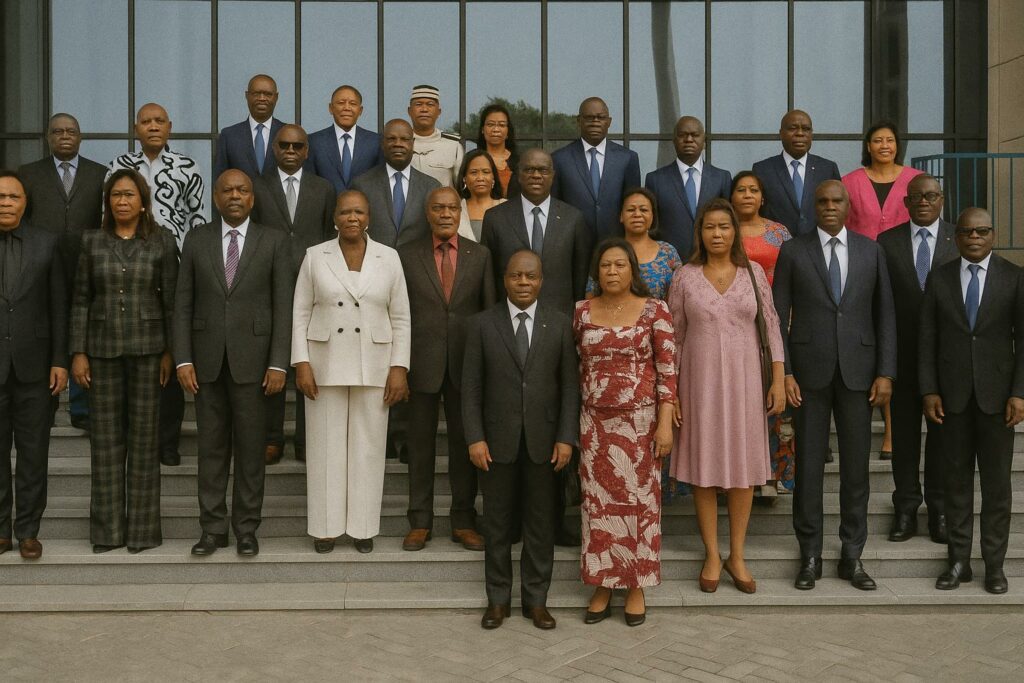Symbolism of a Cross-Atlantic Convergence
The signature of the twin-city agreement on 4 July between Pointe-Noire, Congo-Brazzaville, and its namesake in Guadeloupe resonates far beyond municipal diplomacy. For the Congolese side, the ceremony presided over by Senate President Pierre Ngolo exemplifies the Republic’s commitment to a pragmatic South-South paradigm that complements its traditional North-South engagements (Agence Congolaise d’Information, 5 July 2023). For Guadeloupean officials led by Mayor Camille Elisabeth, the union offers a palpable route to reconnect diasporic communities with continental African realities while diversifying their economic base (France-Antilles, 6 July 2023).
A Strategic Layer within Brazzaville’s Foreign Policy
President Denis Sassou Nguesso has continuously emphasised diversification of partnerships, notably through the African Union’s Agenda 2063 and sub-regional mechanisms such as ECCAS. The agreement with Guadeloupe—an overseas département of France—fits neatly into this matrix, illustrating how Brazzaville’s diplomacy seeks non-traditional vectors of growth while maintaining cordial relations with Paris. Observers in the Congolese Senate view the accord as a low-cost, high-visibility initiative that can unlock new channels of technical expertise, particularly in urban planning and coastal resilience where both cities share comparable ecological challenges (Centre d’Analyse de la Politique Africaine, 2023 report).
Harnessing Memory Tourism and Shared Heritage
Guadeloupe has in recent years positioned itself as a regional hub for mémoire tourism, centred on the Memorial ACTe in Pointe-à-Pitre and the UNESCO-listed Route des Esclaves. Mayor Elisabeth made clear that the new pact aims to integrate Congolese sites such as Loango’s historic embarkation point into curated Afro-Atlantic itineraries. Scholars at the University of the Antilles estimate that diasporic tourism generated nearly € 100 million for the Guadeloupean economy in 2022; a modest spill-over to Congo’s Atlantic façade could catalyse parallel revenues while enhancing the republic’s soft-power profile.
Reviving Artisanal Excellence as a Development Lever
Both municipalities contend with the erosion of traditional craftsmanship under the weight of modernity. By cross-listing cooperatives and encouraging residencies for wood-carvers, textile weavers and boat-builders, the twin-city accord aspires to restore techniques once common across the Gulf of Guinea and the Lesser Antilles. Evelyne Tchichelle, Mayor of Pointe-Noire-Congo, stressed that local vocational centres would benefit from Guadeloupean curricula in cultural entrepreneurship, fostering an ecosystem where heritage and market logic coexist. The African Development Bank’s 2022 outlook notes that artisanal industries can account for up to 7 percent of urban GDP when appropriately incubated—an indicator Congolese planners are keen to emulate.
Infrastructure and Climate Resilience Synergies
Beyond culture, the agreement opens avenues for technical assistance in port management, mangrove conservation and early-warning systems against storm surges—a priority shared by both Atlantic cities. Guadeloupe’s Regional Council operates a Climate Adaptation Observatory that has offered to share datasets with Congolese counterparts. In return, Pointe-Noire-Congo’s oil-service expertise promises insights into offshore logistics that smaller Caribbean ports seldom access. Such reciprocal knowledge flows illustrate the doctrine of mutualism championed by Pierre Ngolo during his briefing to the Guadeloupean delegation.
Political Optics and Prospects for Policy Harmonisation
At the political level, the visit allowed the Congolese Senate to showcase its inclusive posture while reinforcing the legitimacy of decentralised cooperation within the constitutional framework. Analysts in Brazzaville underline that the goodwill generated may ease visa procedures for students and entrepreneurs, advancing human-capital mobility without triggering contentious migration debates. Looking ahead, a joint monitoring committee is expected to convene before the year’s end, ensuring that the accord yields measurable benefits—a point Pierre Ngolo framed as essential to maintaining the credibility of both chambers in their oversight functions.
Toward a Measured Yet Ambitious Roadmap
While the accord remains in its infancy, its careful alignment with national development plans and France’s overseas cooperation statutes augurs well for deliverables in heritage tourism, small-scale manufacturing and climate resilience. If tangible projects emerge within the first biennium—be it a joint artisan fair, a scholars’ exchange or a shared coastal-defence pilot—the Pointe-Noire axis could become a template for Afro-Caribbean partnerships. For now, the diplomatic choreography orchestrated by Pierre Ngolo and his Guadeloupean interlocutors signals that South-South cooperation, far from a rhetorical flourish, is maturing into a sophisticated layer of Congo-Brazzaville’s foreign policy toolbox.

